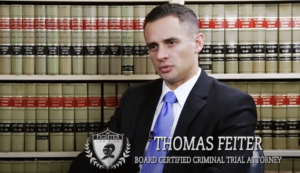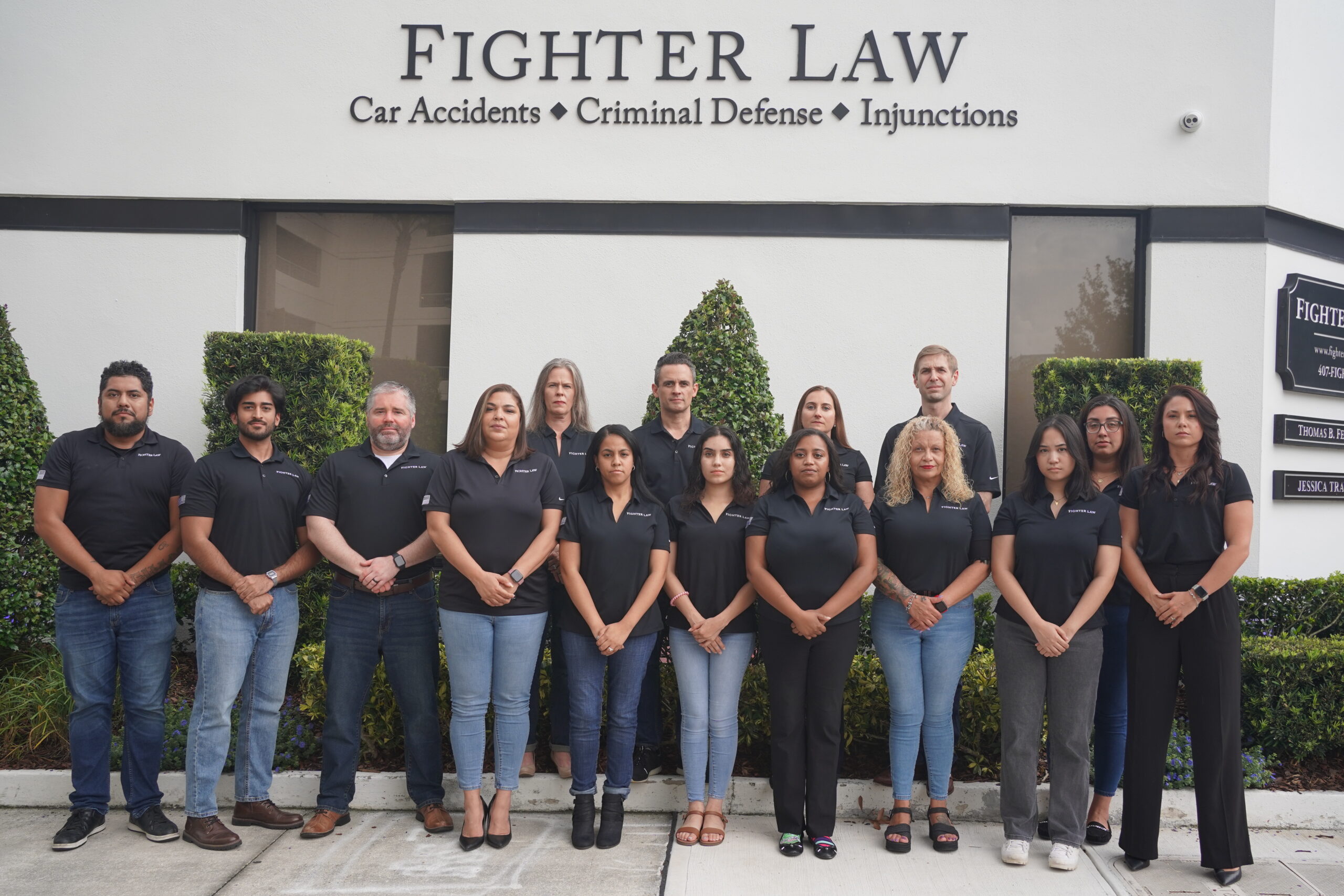Lewd or Lascivious Molestation in Florida
What is Lewd or Lascivious Molestation?
The definition of lewd or lascivious molestation in Florida is when a person intentionally touches in a lewd or lascivious manner the breasts, genitals, genital area, or buttocks, or the clothing covering them, of a person less than 16 years of age, or forces or entices the child to touch the perpetrator, commits lewd or lascivious molestation.
Lewd or lascivious molestation is a serious felony and categorized as a sex crime in Florida. The Florida Statute that covers this crime is found in F.S. 800.04.
There are many defenses available if you are accused of lewd or lascivious molestation. If you have been arrested on this charge or are being investigated for it, try not to panic. There is hope. Most of your case will depend on how your lawyer handles this case before even going to jury trial or even to your first court hearing.
What does lewd or lascivious mean?
The words “lewd” and “lascivious” mean the same thing: a wicked, lustful, unchaste, licentious, or sensual intent on the part of the person doing an act. This is the definition that is given to jurors who sit on these kinds of trials.
Who will be the players or parties in my case?
Defendant = YOU
Plaintiff = State of Florida, represented by an Assistant State Attorney
Victim Advocate = the person who will guide the alleged victim through the criminal court system. This person is not their lawyer – and neither is the prosecutor.
Prosecutor = Represents the State of Florida (not the victim). Whether or not to proceed with the case against you is up to the prosecutor ONLY – never the judge.
Victim Counsel = An attorney who may be retained to advocate for the rights of the alleged victim.
Judge = The judge presides over the case if and when your case goes to trial or if motions need to be heard. The presiding judge will probably be a different judge than the one you saw at your initial court appearance.
What are the penalties for lewd or lascivious molestation?
Florida’s penalties on this crime are severe. The penalties depend on the level of felony you are charged with – and the levels change depending on the age of the victim and the age of the perpetrator. For example, if the perpetrator was under the age of 18 and the victim was between 12 and 16, the maximum penalty is 5 years in prison. However, if the perpetrator is over 18 and the victim was under 12, the minimum sentence is 25 years in prison and the maximum sentence is life in prison.
How can I prepare a defense against a lewd or lascivious molestation allegation?
We always start our clients’ defense quickly with what we call a character portrait. What that is is putting together your biography (who you are, what you do, your general character). We take that along with photographs of you with your family, at work, in front of the Christmas tree, with your dogs, cats, whatever makes you look like a person to force the prosecuting attorney to see you as a good, law-abiding citizen – and not the monster you may be made out to be in the police report. We always take the time to meet with the prosecutor in your case as soon as possible to present this information along with character reference letters on you – on sometimes (if appropriate) as to the poor character of the child or the people who may be influencing the child. You would be surprised at how few attorneys take the time to (1) get to know their clients like this and (2) make such an appropriate and effective argument to the prosecutor. Sometimes this makes all the difference in the world and can even result in a dismissal right there.
So many attorneys get caught up in looking for legal or evidentiary issues in these types of cases that they forget that the decision on whether your case goes to trial lies solely with the local state attorney’s office. If we can convince them that they have a losing case, they may not want to take that chance and give you a better offer or even drop the case entirely. This is a rare occurrence, but we have achieved it many times over the years. While we make efforts to this end, we still look for legal deficiencies and technical arguments in the case as well. So, we cover you on both paths.
Can I avoid a trial if I am accused of lewd or lascivious molestation?
Absolutely. Look, if a trial is necessary, we have the experience and knowledge to defend you. But why take that chance if it is not necessary? We will review your case for holes in the investigation, motives to lie on the child’s behalf (or anyone who has influence over the child), and any other issues that may help us get the charges dismissed before you ever have to go to court. Sometimes, with proper preparation and presentation, we may even be able to convince the prosecutors to amend the charges to something that is not a sex crime, does not require a conviction, does not require prison, and does not require sex offender registration.
Can a child lie and falsely allege I committed this crime?
Yes. Children (like adults) are capable of lying and making things up. More dangerously, however, is the fact that children can also confabulate.
What is my best defense if I am accused of lewd or lascivious molestation in Florida?
An alibi is the perfect defense. In other words, that you were not there making the crime impossible. Confabulation is one of the other best defenses you can mount in a case like this. It is difficult for any attorney to argue to a jury that a child is lying (even if it is true, the jury will hold it against you and your lawyer for trying to say that). However, saying that the child is confused or misremembers something is a much easier defense and a jury has a much easier time acquitted using that argument.
What is confabulation?
Confabulation is a psychological term for when a person misremembers something. For example, you may remember that you went to went to dinner with your wife on your anniversary a few months ago, but you may think that you remember exactly what you had to eat. You may have it fixed in your mind that you had steak and red wine. You may believe that so much so that you can pass a polygraph examination on that point because it is what you honestly believe. However, when you see a photo of the dinner table you see in the photo that you actually had fish and white wine. You confabulated. Some of the things were correct, but you got a major detail dead wrong.
Similarly in child sex crimes (like lewd or lascivious molestation) the victim may have been actually molested – but they get a key fact wrong in thinking it was you. Or it happened in a dream and they are confusing dreams with reality.
What if I thought the victim was 18 or older?
Ignorance as the victim’s age is not a defense that is permitted under the law. Nor is the victim’s consent. This is considered a strict liability crime.
Should I hire a private investigator if I am accused of lewd or lascivious molestation?
Maybe. If you have an alibi or there is a motive that an investigator can uncover, a private investigator may be very helpful. Often times, they are former sex crimes detectives and can give us insight into what the detective on your case did wrong.
Do I need to hire an expert witness if I am accused of lewd or lascivious molestation?
Often times expert witnesses (like psychologists) are very useful in cases like this, particularly when it comes to the memory or possible psychological issues concerning the child. Such an expert can help insert reasonable doubt for the jury. Sometimes, the psychologist can even help convince the prosecutor that this case is not worth pursuing.
Can a child be coached into making one of these allegations up against me?
Absolutely. Like adults, children can be made to believe things that just are not true. For example, where were you born? How do you KNOW? Most of us only believe that because it is something our parents have told us. Or we might even see it on a birth certificate. But do either of those make it true? Of course not. People can lie and documents can be forged. Remember, the State has to prove this case against you beyond all reasonable doubt. A skilled defense attorney can find and present such doubt to a jury so that it sets you free against such a false allegation.
Another example of child coaching is when the adult really wants to believe that you did this to the child for some underlying reason. Maybe the new boyfriend, girlfriend, or spouse wants you out of the picture? Maybe the child comes home and says that you swatted the child on the butt because she misbehaved? Nothing sexual at all. But now if an adult asks the child if you touched her butt, she can honestly and credibly say yes. The sexual nature of the touching can be made up by the person who wants to hurt you.
Can I go to prison for such lewd or lascivious molestation?
Absolutely. Most offers in these cases will begin with a prison offer even if you have ZERO criminal history. And if you are over 18 and the victim was under 12, the State has to offer at least 25 years in prison.
Will a lewd or lascivious molestation conviction cause me to be a sex offender?
Yes. Lewd or lascivious molestation is categorized as a sex crime, which means that you will be subject to sexual offender or sexual predator registration for the rest of your life.
Can the police force me to confess to lewd or lascivious molestation?
No. The police have to abide by certain protocols when conducting their investigation. If not, we might be able to file a motion to suppress to have your confession thrown out so it can’t be used at trial.
Do the police have to read me my Miranda rights before asking me questions in a lewd or lascivious molestation investigation?
No! Miranda rights only have to be read during a custodial interrogation. So if they are talking to you in your house and you are free to leave at any time, chances are that you are not in custody and they DO NOT have to read your Miranda rights before interrogating you! This is a tricky area of the law that may require a motion to suppress if there is an argument as to whether you were (1) in custody or (2) being interrogated.
Can the police lie to me to get a confession in a lewd or lascivious molestation investigation?
Yes, absolutely. It is a common law enforcement tactic to lie to a person to get them to confess to a crime. I know it seems shady and improper and illegal but trust me – it’s legal. And your confession will be used against you at trial.
What is a controlled phone call?
A controlled phone is an extremely powerful investigatory technique often used in these types of cases. It is where a law enforcement officer and the victim try to make contact with you on a recorded line to get you to confess to something. It does not even have to be a confession to the actual crime. It can just be a confession to putting you in a room alone with the child on a certain date. Usually recording phone calls like this is illegal, but there is an exception for sex crimes investigations and any recording obtained even without your knowledge, consent or permission can be admitted at trial and played for the jury to hear.
What should I do if I am being investigated for lewd or lascivious molestation?
Do not say anything! Stop everything you are doing immediately. Your life, your future and your freedom are in jeopardy. Don’t react or say anything to anyone as much as you can help it. Call a defense attorney right away. You are not going to talk your way out of it and the police are not your friends.
Contact Expert Criminal Trial Lawyers to Represent You!
We are both Board Certified in Criminal Trial Law by the Florida Bar. Before you hire an attorney to represent you in a case like this, ask the attorney if they are board certified. You want to have the most qualified and most experienced trial lawyers at your side if your case has to go before a jury. Call or text us at 407-344-4837 to discuss your case and potential defenses in a free consultation.
free case evaluation
Fill out the form below for an free evaluation of your case.




Sex Crimes Defense Lawyer

Practice Areas
Learn more about our services in Criminal Defense, Personal Injury, and Injunctions.

We Fight for Outstanding Case Results
We are driven to get you results. Review the outcomes on recent cases we've handled.





